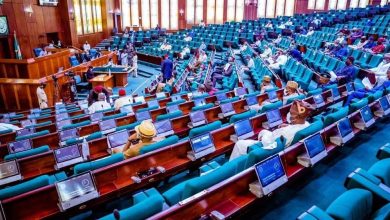FG Targets 600,000-Barrel Daily Crude Oil Output as Investments Rise
The Federal Government says Nigeria’s oil output could rise by 600,000 barrels daily in 2025.
The NUPRC credited new field projects, fresh investments, and ongoing reforms for the expected surge.
The Federal Government has projected a rise of about 600,000 barrels in Nigeria’s daily crude oil production, following a wave of new investments in the upstream sector.
According to the Nigerian Upstream Petroleum Regulatory Commission (NUPRC), the increase will be driven by 28 Field Development Plans approved so far in 2025. These projects are expected to produce roughly 600,000 barrels of oil and over two billion standard cubic feet of gas per day.
If achieved, the new output will push Nigeria’s total daily crude production to around 1.89 million barrels, up from the 1.39 million barrels recorded in September.
NUPRC Chief Executive, Gbenga Komolafe, disclosed this at the 2025 World Energies Summit in London. He said the approved field projects would unlock an additional 1.4 billion barrels of oil and 5.4 trillion cubic feet of gas, backed by $18.2 billion in capital investment.
Komolafe explained that the sector is on a strong recovery path, with increasing investor confidence and ongoing reforms designed to make Nigeria a competitive global energy hub.
He pointed out that under President Bola Tinubu’s administration, the government has introduced strategic reforms aimed at attracting fresh capital and boosting exploration activities ahead of the next licensing round.
According to him, rig activity in Nigeria has climbed from just eight in 2021 to 70 in 2025, with 41 rigs currently drilling across various fields. Production, he added, has also risen from 1.46 million barrels per day in late 2024 to about 1.8 million barrels this year.
The NUPRC boss cited major investment decisions such as the $5 billion Bonga North project and the $500 million Ubeta Gas Project as proof of growing investor confidence in Nigeria’s energy sector.
He further noted that the Petroleum Industry Act of 2021 has brought transparency, stability, and investor-friendly fiscal terms to the oil and gas industry, while 24 new regulations have been introduced to align the sector with international standards.
Komolafe said the Commission is also implementing a decarbonization framework that promotes climate-friendly production practices, including carbon capture and access to carbon markets. He added that the Host Communities provisions of the PIA have improved trust and cooperation between oil companies and host areas.
He reaffirmed that Nigeria remains committed to balancing energy transition goals with energy security through the Decade of Gas initiative, describing it as central to the country’s sustainable growth strategy.
The NUPRC chief also invited local and foreign investors to participate in Nigeria’s upcoming block licensing round, promising a transparent process and attractive incentives.
Recent developments in the industry support the government’s optimism. On Tuesday, Shell announced a $2 billion investment in the HI Field, a shallow offshore non-associated gas project in Oil Mining Lease 144.
The project marks the second major gas investment in 18 months and brings total upstream investment commitments to over $8 billion since President Tinubu took office in 2023, a sign, officials say, of renewed global confidence in Nigeria’s oil and gas reforms.



